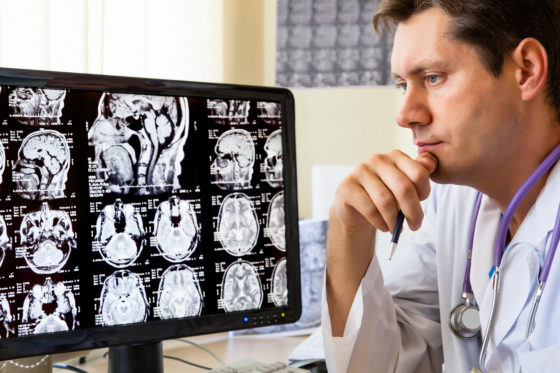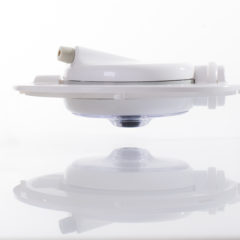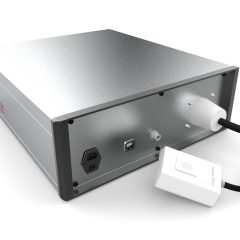
What is fMRI?
The functional magnetic resonance imaging (fMRI) is a technique of medical examination that is based on BOLD (blood oxygen level dependent contrast). This method measures blood oxygenation levels in the entire brain area. It is established as an entirely safe, non-invasive method for nervous system examination. The method generates results that are characterized by exceptional spatial resolution.
The fMRI can accurately show which brain regions are engaged in an assignment given to the subject.
Since the nineties, when the fMRI method was developed, it is recognized as the most reliable of all methods of brain activity examination. Thanks to its superior accuracy it dominated other methods of brain imaging.
Due to a better understanding of the signal and optimization of signal acquisition, it didn’t take long to significantly improve the quality of the magnetic resonance.
Currently, there are technological solutions available which create new research opportunities and entry into completely new research areas. There are more devices that can be introduced into the magnetic field. Those devices enable better control and a wider range of stimuli, stimulation and recording of signals with a particular modality. The mutual communication between the patient and the medical examiner has also improved thanks to special answering panels, as well as headphones and microphones with active noise cancelation.
Introducing biosignals into a standard magnetic resonance examination may allow for better monitoring of the patient (eg. emotional state or muscle activity), or even his or her engagement in the examination. Such practice allows for isolation of important data which leads to valuable results.
Areas of application
Neurology, Neurobiology, Radiology, and Physiology:
- Observation of brain structure activity in patients
- Detection of anomalies
- Observation of compensation mechanisms in neurodegenerative diseases
- Detailed surgery planning
- Creating functional maps for neuronavigation
- Assessing the results of a surgery
Pharmacology, Psychology, and Cognitive Science:
- Two-way observation of the effects of pharmacotherapy, treatment plans or training
- Observation of brain activity related to the behavior or take out of parenthesis the examinee’s abilities
- Examination of reactions and active areas in response to sensory stimuli and cognitive exercise
- Research on brain neuroplasticity
Articles
- Structural reorganization of the early visual cortex following Braille training in sighted adults
- The Effects of Alcohol Intoxication on Neuronal Activation at Different Levels of Cognitive Load
- A NIRS–fMRI investigation of prefrontal cortex activity during a working memory task:
- A Quantitative Comparison of Simultaneous BOLD fMRI and NIRS Recordings during Functional Brain Activation
- Emotional Voice Areas: Anatomic Location, Functional Properties, and Structural Connections Revealed by Combined fMRI/DTI
Producers and products
Neuro Device Group
Neuro Device Group specialise in the development of innovative solutions in the field of therapy, diagnostics, and scientific research of the brain and the central nervous system, providing the world with solutions that change the quality of human life.

Neuro Device Camri ™
Neuro Device Camri™ is a recording camera designed for diagnostics and testing in MRI scanners. The use of the device increases the safety of the test subjects and the effectiveness of MR tests.
Read moreNeuro Device Scent ™
Neuro Device Scent™ is a system for measuring reactions of human neuronal system to scents during sensory analysis and examination of the nervous system.
Read moreNeuro Device Tacti ™
Neuro Device Tacti™ – Tactile stimulator for localisation of brain sensomotoric areas. It is used for preoperative fMRI diagnostics and functional examination of brain areas.
Read more


